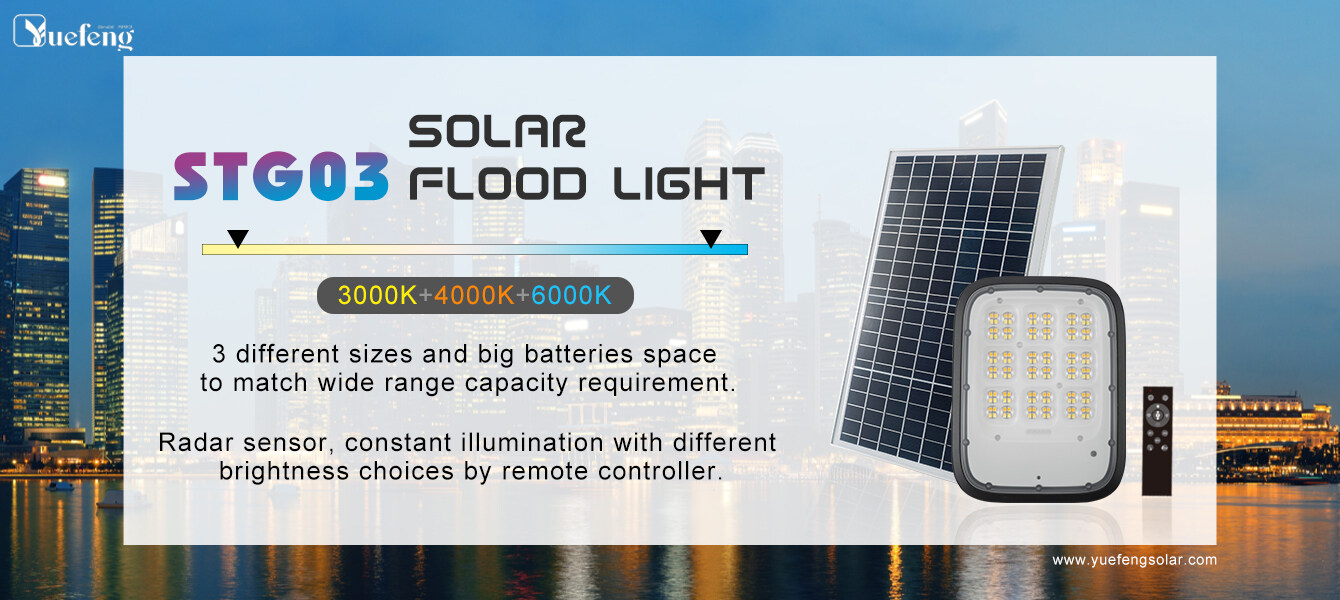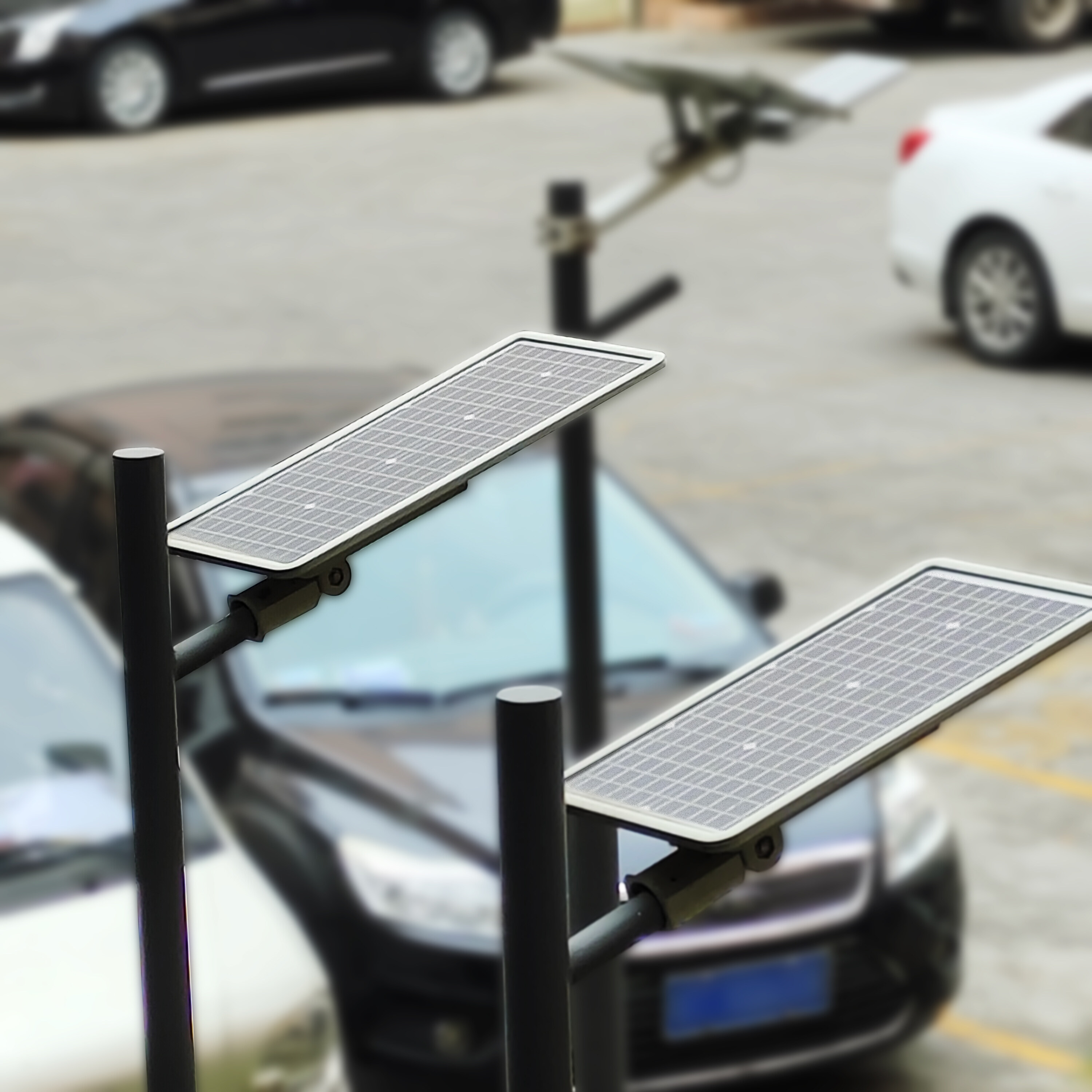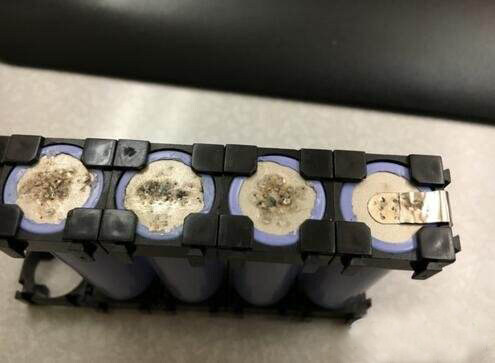
Solar powered outdoor flood lights are worthy investments that save you from high monthly energy bills. Modern outdoor solar lights come with solar panels to convert solar energy into electricity. However, they can sometimes act up. It can be stressful if your solar lights need to be fixed.
What makes solar lights not work, and how to fix them? Your solar lights can fail due to faulty electrical wiring, damaged battery, non-exposure to the sun, and other reasons. What can you do when the exterior solar lighting is not working?
This article will focus on why solar lights may fail and learn what to do when your solar lights stop working. Let's dive right in!
To understand why your solar lights are not working, we should first figure out how a solar lighting system works and its various components. People prefer solar lights to other types that use grid-connected power because they are energy efficient and cost-effective. They relieve you from paying bills for your outdoor lighting.
A solar light system consists of a solar panel, batteries, sensors, and LEDs. These components work synchronously to turn solar lights on or off automatically. Here is a quick highlight of the roles played by each:
If your solar powered outdoor flood lights are not working, one of the components is faulty. As mentioned, the constituents should function synchronously to light your home at night. Let's break it down for an easy understanding of why your solar light may fail.
A faulty light sensor can be the reason why your solar lights are not working. It is the switch that turns on your solar lights at night and off during the day. It does that automatically and effectively to save energy and improve the lifespan of the whole system. That will only happen when the sensor is working as it should.
Signs of a faulty solar light sensor include lights remaining on during the day or failing to turn on at night. Some modern outdoor solar lights have an infrared remote control for the same action, but what if you are unavailable or have someone press the button? A sensor is a vital component of a solar light system to work.
How do you know if the solar sensor is the problem? Cover the sensor with a dark piece of cloth or any other opaque object and see if the lights turn on. If that does not happen, it may be time to replace the sensor. Fix your solar lights by replacing the sensor. It should do the trick if it were the only culprit. Otherwise, consider other possible causes.
Dirty solar panels can be the reason why your solar lights stop working. A solar panel has cells that capture solar energy when the sun shines and converts it to electrical energy needed to drive the LEDs. If they are covered by dirt, the whole process is compromised. Low power will be stored in the battery, which will never run the solar lights for long.
This problem is gradual as dust and particles accumulate on the solar panel. Your solar lights may start by not remaining on the whole night and eventually fail to turn on if the solar panels are dirty. It is the same thing when you put your solar panel under a shade or a place where they don’t get enough sunlight due to weather.
Clean the solar panel and ensure it is not under shady conditions. Orient it on a south-facing slope for direct sunlight. That should fix your solar light not working problem if the batteries are healthy.

Solar Panel For Modern Outdoor Solar Lights
If your solar lights are not working, the battery can be the reason. Any solar light system has rechargeable batteries that store electrical energy chemically and release it at night to drive the LEDs. If there is enough sunlight, the batteries get charged. Light sensors complete the circuit that connects the battery pack to the LEDs when the sun goes down.
Battery cells of modern outdoor solar lights wear over time and lose their ability to hold a charge. Once again, this problem is gradual. The battery becomes weaker and weaker with each charging and discharging cycle. Over time, they die and do not provide energy for your solar lights.
You can only fix this problem by replacing the rechargeable batteries with a new set. But before you do that, ensure they are dead. Open the back panels to access the batteries and test them individually in the evening when you anticipate they have some charge. Check to see if you get any voltage readings. You can use a digital multimeter or a small light bulb.
If the batteries have charges in them, they are not the culprit. It may be the solar panel or a fault in the circuit that charges them. Find the problem elsewhere.

Dead Batteries
The solar panel, light sensor, batteries, and LEDs are connected with wires to a control module that coordinates everything. And even before concluding whether it is the sensor or any other component, you should first check their connections. Even a single wire that creates an open circuit can be the reason your solar lights stop working.
Solving this problem may require expertise to solve it. Consider calling a technician if you are not a DIYer to help you fix the problem. The task may require testing the continuity of every wire using a multimeter.
Solar panels are designed and manufactured to resist water intrusion. So, why do they suffer from water buildup? If you have used a solar panel for some time, you should have seen that the sealant becomes ineffective over time. That can allow water into the solar panel.
A solar panel has many solar cells connected in a series and parallel hybrid network. Water can short these internal wirings, causing damage and general failure of the entire solar panel.
Check if your solar panel has water buildup. Detach it from the panel head, wall, post, or where it is mounted and check. You may need to replace it to fix the solar lights. It simply means that rechargeable batteries get less power from solar panels.
Solar-powered lights or other devices are controlled by complex circuitry. That circuitry is sensitive to elements such as water and dust. Fortunately, most of these devices have Ingress Protection (IP). They are often rated IP 65 for use in outdoor environments where they may be exposed to water and other weather elements.
However, they may still suffer from weather-related damage. The plastic casing that houses the entire circuitry may become less waterproof with time. When that happens, water can ruin the internal circuitry of the solar light system. The reason for that can be poor build quality, insufficient IP protection, or degradation, which happens over time.
If your solar lights are not working because of damages caused by water intrusion, you may need to replace them. Getting a repair solution or a way around it takes work. Contact a technician in your area to help out.
This is highly unlikely, but it still happens anyway. LED lights are long-lasting light bulbs with a definite lifespan. They are rated thousands of hours (typically 50,000 hours), and the countdown begins the time to turn the solar lights on.
Solar lights consist of many LEDs housed within a reflective case. The lights generated are then projected away from the source to illuminate your compound. Only some LEDs will go out at a time. It is a gradual process that causes the light to become dimmer and dimmer with time.
The solution is to replace the LEDs with new ones. But again, you should check the battery pack’s health status and the solar panel’s conditions before doing this. It is better still if you can diagnose the entire system first!
Nearby lights can be the reason your solar lights are not working. Your solar lights use a light sensor to know when dark falls to turn on. Any nearby light can deceive the sensor that it is still daytime. That will keep the lights off.
The solution is to check if there is light interference from nearby sources and remove them. Your solar light should function as it should after that.
The solar panel doesn't seem to work well near glasses. Glasses reflect sunlight away from the solar panel. That means not enough sunlight for the solar cells to extract energy from, though it will still charge the battery pack. Any solar-powered device may stop working if installed too close to a glass surface.
Check if there is any glass close to the solar panel and remove it. The efficiency of solar panels reduces when they receive sunlight through glass.
Pull tab is only a problem only when you are installing new solar lights. A battery tab is a piece of insulator inserted between the battery and terminal on the battery bay at the back of the solar light. The purpose of the pull tab is to prevent battery drain before the solar lamp is turned on.
It is possible to install your solar light without removing the pull tab. If it is the first time you are testing your solar light and not working, check the battery bay and remove the pull tab.
The same applies to the on and off switch. Before the system can start working, you should turn on the power switch. Once again, it is possible to hook up your solar lights on the posts before doing that. A second check can ensure you get it right.
Solar Wall Light With Motion Sensor
This applies to solar-powered lights with motion detection capability. These types have infrared sensors that detect movement within the vicinity. The sensor activates the light when squirrels, birds, cats, and other animals come closer. They also have a knob for controlling the sensitivity of the infrared sensor.
Your solar-powered light may stop working if the sensitivity adjustment knob is in minimum condition. That means it won’t sense the presence of animals and fails to activate the lights. You can fix your solar lights by turning the knob to a different position.
You will need to fix the solar lights when they stop working. But is there a way to make them last longer? Yes. You can use the following tips to enhance the service life of your solar lights:
Cleaning solar panels is necessary to keep your solar lights working efficiently. Remember, your solar panel has to deal with dust, water stains, snow, hail, bird poop, debris, vermin, and other contaminants. These can significantly cover the solar panel, which can be why your solar lights are not working.
Choose the best time to clean your solar panel, preferably in the morning or evening. Rinse it with water and scrub any sticky debris. That will allow the solar cells to absorb enough sunlight to keep the solar lights on the whole night.
Any manufacturer of rechargeable batteries advises users to charge them to capacity before use. The same applies to solar lights. You should install them in the morning to allow the batteries to charge throughout the day. Let the power switch remain off for about 72 hours to ensure the batteries are fully charged.
Also, replace ineffective or dead batteries. Your solar light battery cells will eventually die. To keep using them, buy new batteries.
Outdoor Solar Wall Light With Motion Sensor
You should install your solar lights outdoors, where they get direct sunlight to keep the battery charged. Avoid near tall trees or a place where they can be easily knocked off by lawnmowers or when reversing on your driveway.
Install solar lamps where they get abundant sunlight and are less exposed to dust.
Solar lights are outdoor devices and should remain there because they are designed to withstand weather elements. However, they may fail during snowstorms, hurricanes, and heavy rains. Consider keeping them indoors until the weather changes for the better to avoid physical damage.
Cheap solar lights will last about one year. That is because they come with batteries that die very fast. If you want longer-lasting solar lights, go for the best quality. They may cost more, but worth it.
Many people switch to outdoor solar lights because they are energy-efficient and environmentally friendly. They can light up your driveway or lawn, or backyard garden without adding extra cost to your energy bills. However, solar lights can stop working for the reasons stated in this post. We will not iterate the same here but advise you to diagnose your solar lights to find the cause and fix them as appropriate. Your solar lights may not be dead if they cannot light up at night.